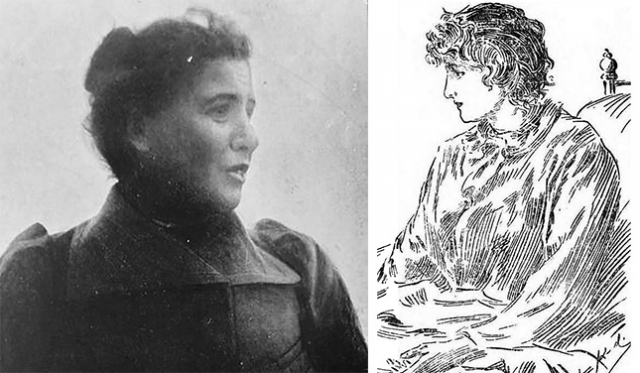Real Lives: The Russian hermit of Cornwall’s caves
Historian feature

Jeannie Schmolovitz, the Russian hermit of Cornwall’s caves
Our series ‘Real Lives’ seeks to put the story of the ordinary person into our great historical narrative. We are all part of the rich fabric of the communities in which we live and we are affected to greater and lesser degrees by the big events that happen on a daily basis. Sometimes we might even play a part in the big events, although our names are not recorded, while on other occasions we are witnesses to events and times which we would now consider remarkable. Sometimes our regular lives are the perfect illustration of how people live at any given time – but all our lives matter and we want to celebrate some of those lives here. If you have any people that you think might also fit this category and would like to write about them, please do contact: martin.hoare@history.org.uk
In the early 1900s, when Henry Tuke was painting boats and young men, a ‘Russian hermit’ roamed the Cornish caves. The story is now somewhat forgotten, but in the mid-1900s Jeannie Schmolovitz (possibly Schmulewitz) was a media star making international headlines. She became known as ‘The Lady Hermit of the Cornish Cliffs’. Mystery surrounds Jeannie’s story both before and after she reached Cornwall. Why she came to Britain is unknown and the exact details of her travels are as murky as the water in the English Channel. What is clear is that Jeannie was a woman brave enough to travel alone without, as one newspaper put it, ‘visible means of support’.
Born in Shavel (now Siauliai, Lithuania) to a highly educated Jewish family, they were hit hard by Aleksandr III’s reactionary politics. Among other things, Jews were expelled from universities and prevented from working in certain professions. Jeannie appears to have left her family in the Russian Empire around the late 1880s or early 1890s. Jeannie was, by all accounts, intelligent, well-mannered and strong. She spoke broken English, Russian and perhaps two other languages. This image is quite different from the frail woman in tattered clothes living off berries the people of Cornwall would come to know...
This resource is FREE for Historian HA Members.
Non HA Members can get instant access for £2.49

